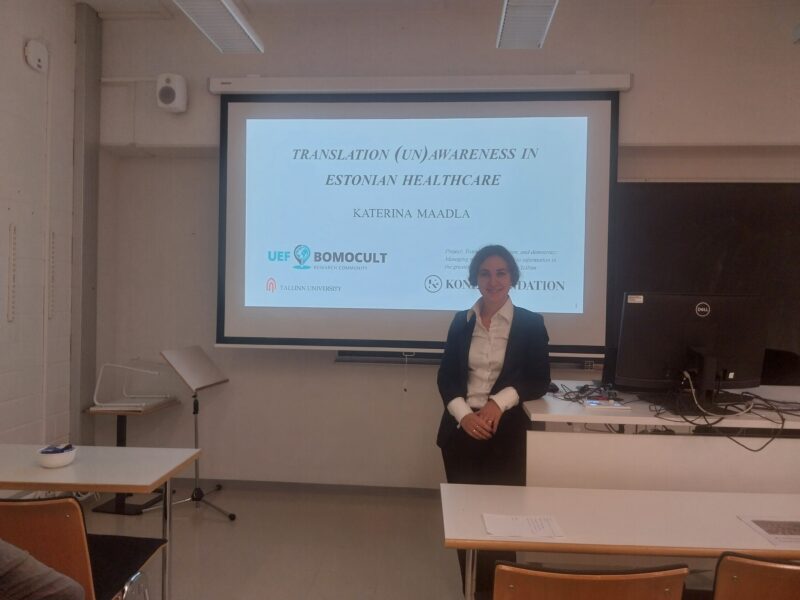
How do language, borders, and migration intersect? For Jekaterina Maadla, a Junior Researcher in Translation Studies at Tallinn University, these themes are at the heart of her work. As part of the Eur-Asian Border Lab’s scholar collaboration initiative, she spent a week at the University of Eastern Finland (UEF), a visit that challenged perspectives, sparked new research directions, and built lasting academic connections.
A dive into Jekaterina’s research
Jekaterina’s research focuses on linguistic accessibility in public services, a critical issue for multilingual societies. As a language teacher, interpreter, and researcher, she has seen firsthand how communication barriers shape access to public services, particularly healthcare and legal systems and she hopes to address them with her research and work.
“My work focuses on improving linguistic accessibility within public services and exploring effective methods for bridge language barriers in multilingual environments. My research aims to contribute to more accessible and inclusive public services in various domains, but at the moment I mostly focus on healthcare. Through my practical experience as an interpreter, I am acutely aware of the complexity of addressing communication challenges fairly and effectively. In my role as a researcher and educator, I strive to equip practitioners with hands-on, research-based strategies to overcome language barriers and support needs-based communication in healthcare and legal settings.”
From translation studies to border research: A surprising synergy
The exchange provided Jekaterina with an eye-opening realization: language is not just a border between nations, but also a barrier between communities, rights, and opportunities. Initially uncertain about how her Translation Studies background connected to border research, the experience helped her draw the link. Who has access to vital information? How do migrants overcome linguistic exclusion? What role does language play in shaping both visible and invisible borders? The exchange experience reinforced a powerful truth: borders are not just about territory, they exist in language, policies, and everyday interactions.
At UEF, Jekaterina presented her research at the Bomocult conference, delivering a lecture titled “Is Multilingualism a Magic Pill? Translation (Un)Awareness in Estonian Healthcare.” She examined how non-official languages are handled in Estonia’s healthcare system, shedding light on hidden inequalities and the unspoken challenges that migrants face when navigating public services. Beyond the conference, she collaborated with the ReTra research group, exchanging ideas for an upcoming edited volume, Exploring Translation (Un)awareness (to be published by Routledge!) and exploring future joint projects.
Crossing academic borders
A key highlight of the exchange was connecting with fellow scholars whose work resonated in unexpected ways. A conversation with Teele Jänes (UEF) sparked ideas that will shape Jekaterina’s future research, and in fact, the exchange has already set the stage for UEF professors Esa Pentillä, Juho Suokas, and Juha Lång to visit Tallinn University for a seminar. She also expresses gratitude for the support of the Border Lab’s Alicja Fajfer, both prior to and during her visit to UEF.
From Joensuu to Tallinn, this exchange was more than an academic visit, it was a reminder of why collaboration across disciplines and borders is essential. With new research connections, upcoming publications, and fresh perspectives, Jekaterina’s journey is far from over.